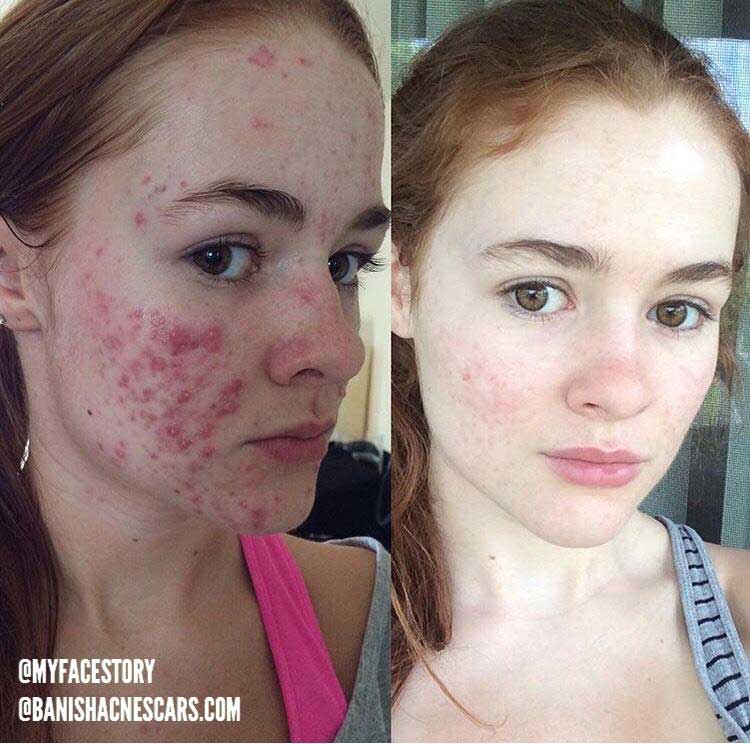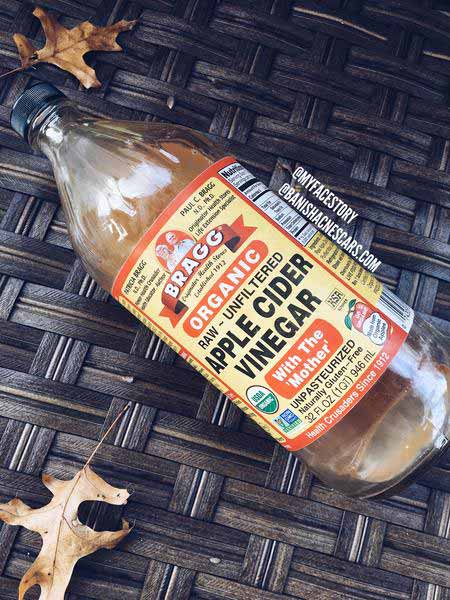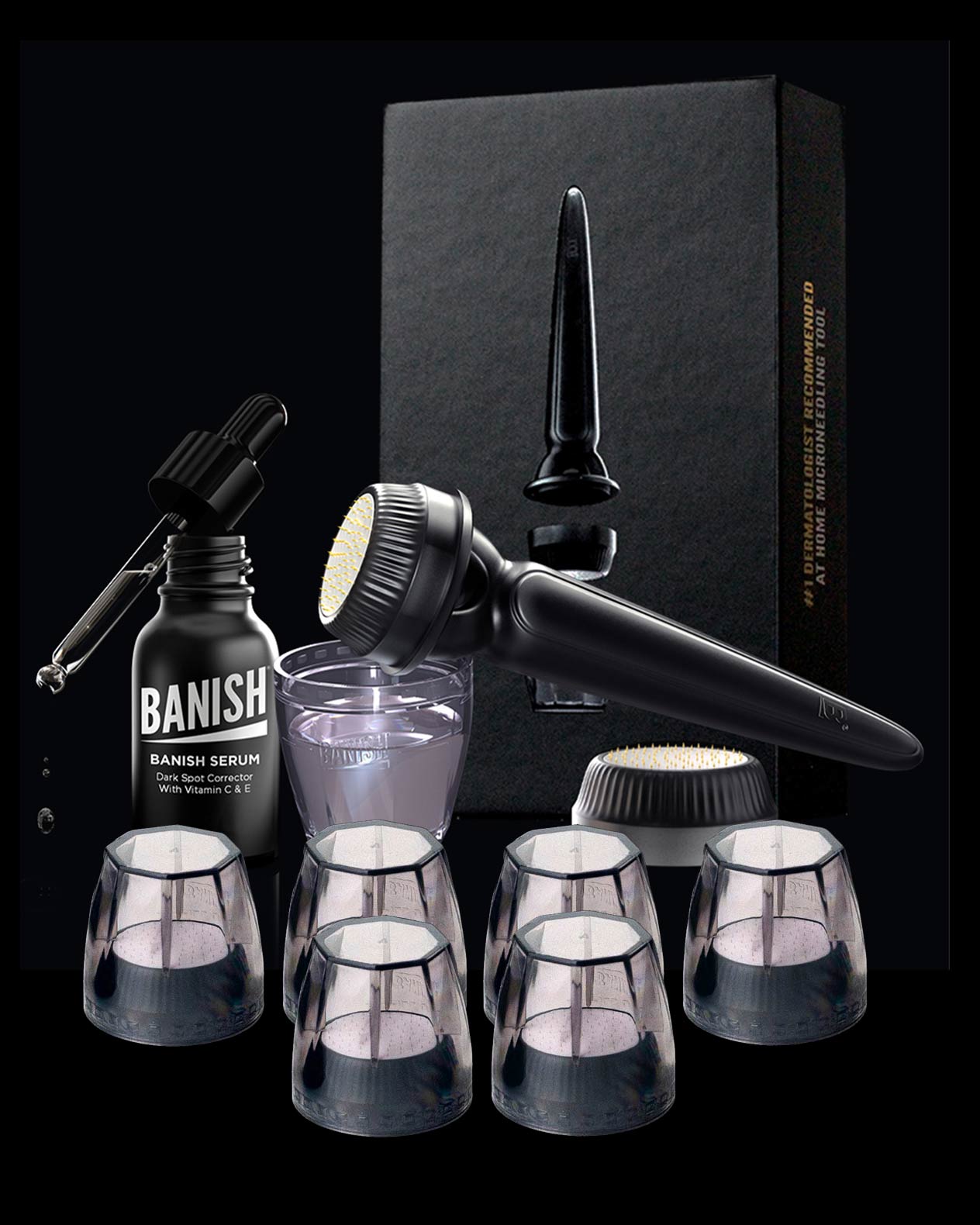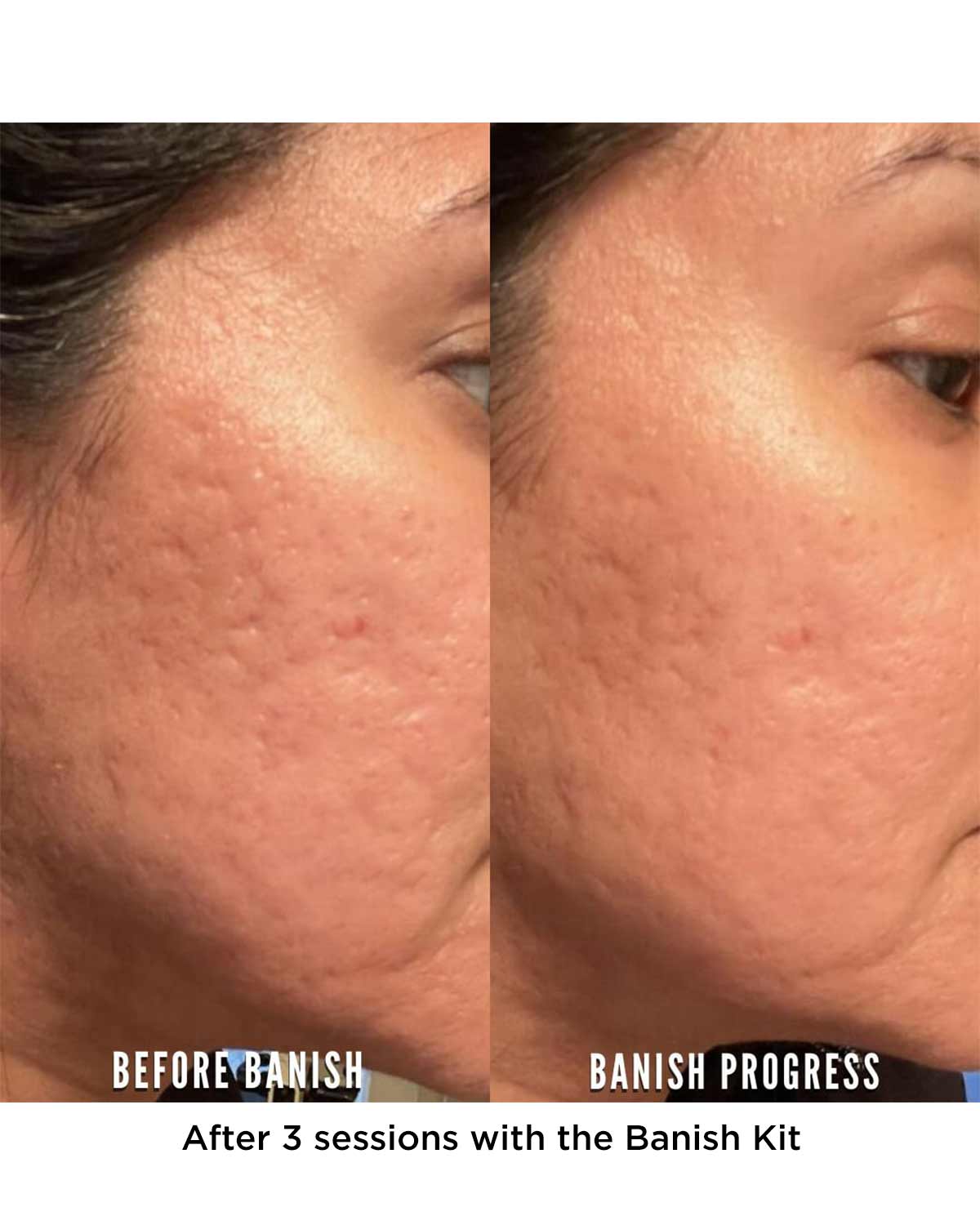Do you sometimes feel embarrassed facing people while you’re developing acne? Having acne free skin is something we may desire, however it's possible we can become stressed out while doing everything we can to achieve acne free skin , leading to stress acne, and then the cycle continues! But don’t you fret, nothing is ever permanent, not even acne.
A lot of people people break out from periods of high stress – whether from work, preparing for a big day, moving, or exams and deadlines. Sometimes there can be a personal change like a relationship ending or a new relationship starting that can bring stress. That’s where the stress acne enters the scene.
It seems like stress has got to cause acne right? Here we'll explain how stress affects acne and how to treat stress acne.
DOES STRESS CAUSE ACNE?
Yes, stress can cause more acne breakouts and worsen our already existing acne prone skin. However, stress will not cause acne if you aren't already acne prone.
Stress is a feeling of emotional of physical tension and it comes from any event or thought that makes you feel angry, frustrated or even nervous. Stress causes our adrenal glands to spike up stress hormones known as cortisol as well as overproduce androgen hormones that cause us to go through a heightened state of awareness.
The cortisol indirectly causes acne as it makes your body in a constant state of inflammation, leading to more inflamed or clogged pores whereas androgens trigger excessive sebum production leading to increased acne.
What Happens When You're Stressed?
Once we feel stressed, Our hypothalamus is triggered, hence releasing this corticotropin releasing hormone (CRH) that stimulates our pituitary gland.
Also known as the stress hormone, cortisol regulates changes occurring in our body when we are at our most stressful moment. The cortisol hormone controls our blood sugar level as well as blood pressure and inflammation levels.
When we're stressed, the heart pumps blood faster than it does and blood vessels contract to cope or keep up with the stressful situation you're in.
The responds mainly comes from the mind and how we deal with it - however physical stress such as getting injured, or exhaustion can also cause the same thing too.
HOW DOES STRESS AFFECT MY SKIN?
Both physical and physiological stress may have something to do with your stress acne breakouts (as well as overall health). These cortisol hormones can be managed naturally but they can further trigger breakouts when we’re placed under a stressful situation for a long period of time.
Just imagine this scenario: You’re cramming or preparing for finals week, moving out to a new home, preparing for a job interview or even breaking up with your cheating boyfriend or girlfriend… all these stressful situations can lead to high levels of cortisol, worsening your skin inflammation. We all know that acne is an inflammatory skin disease and stress causes a widespread inflammation throughout our whole body, leaving nothing to blame but this stress for our worsened stress acne breakouts.
Why Does Stress Cause Inflammation?
Our cells can be regulated by these neuropeptides and neurotransmitters (chemicals released by our skin’s nerve endings). Stress results to our skin’s nerve endings release of increased levels of these chemicals, affecting our body’s response to many important functions like sensation and control of blood flow and contributing to stress symptoms. Release of neuropeptides and neurotransmitters can possibly cause our skin to become inflamed.
Another way that stress causes acne is that it interferes with our thyroid hormone where low levels of this hormone makes our skin more prone to skin inflammation.
Stress affects us in many ways that it also disrupts our skin’s protein/lipid barrier responsible for creating a seal that maintains our skin’s hydration and protecting it from any microbial infection. A disrupted skin barrier can cause a flaky, dry and susceptible skin, delaying a repair response.
Stress causes small but immensely significant negative effects on our body. Our skin is not just a target of stress signals but it also participates in responding to stress. Thus, stress definitely affects our acne problems but it does not deliberately mean that stress is the main cause of our skin problems.
Another way that stress can affect acne is through increasing testosterone and prolactin. These two sex-related hormones can either help keep our skin naturally clear (when balanced) or increase our risks of developing acne (when these hormones shoot up)
CLINICAL STUDIES On Stress and Acne
A Dermatologist at Stanford University recruited students to study their skin during two periods of time, once during exam week and the other time during a relatively stress-free period. They also gave the students questions to fill out to measure their levels of stress. The results positively concluded that “changes in acne severity correlate highly with increasing stress.”
Another study done at a university in Singapore yielded the same results. However, they suspect that the main qualifying factor for acne production is not sebum alone. Acne severity differed between high and low-stress situations (being worse with higher stress and better with lowered stress), however, sebum quantity did not. Because of this, Acne severity associated with high stress is thought to be related to other factors unrelated to sebum quality.
Acne and stress affect each other vice versa. But there’s no need to fret as you can manage stress and convert it to a good positive energy. Remember that experiencing these occasional bursts of anxiety is common. We can minimize or alleviate stress through different ways.
Below are a few steps on how you can implement and minimize that stress and the acne that comes with it:
Easy Steps To Prevent Stress Acne
1. STRESS LESS WITH SUPPLEMENTS
There are a variety of natural supplements and herbal remedies that anyone suffering from acne can use to treat it. Nutritional and herbal remedies for stress may be very effective tools to mitigate your stress acne.
Zinc and Folic Acid
One study showed that certain serum nutrient levels are low in people with depression and anxiety, which are also nutrients commonly lacking in people with acne, such as zinc and folic acid. Evidence has shown that some of these nutrients, namely zinc, may improve acne (see my post on Supplements For Acne). In another study, people who took omega-3 supplements self-reported an improvement in both their overall well-being, and their acne.
B Vitamins
Supplements containing high doses of B vitamins are also often taken to help improve mood (see my post on Vitamin B6 For Acne Free Skin).
Wanna know what we found out? People with depression and anxiety as well as those people with acne commonly have low nutrients and these nutrients include the following: Zinc, Omega 3 and B6 which help improve their mood-related and acne symptoms.
Passionflower Extract, Magnesium, L-Lysine
Passionflower extracts, Kava, L-lysine and L-arginine, and magnesium-containing supplements all hold promise for treating the symptoms of anxiety, but more research is still needed.
Increasing your micronutrient intake can improve both your stress and acne and it may be important to consider how you can add these nutrients to your diet by means of whole foods and supplementation.
2. TRY GUIDED MEDITATION
Try guided meditation as well as other cognitive-behavioral tools as it breaks the cycle of stress and teaches us on how or where we focus our thoughts, beliefs and our attitudes which affect the way we feel and behave. Guided meditation also helps us reflect specifically on our acne and the way our thoughts and feelings show towards our skin.
You can implement stress-reducing ways at home when improving your acne through other helpful tools such as relaxing your muscles, meditating your mind as well as doing yoga as these activities help free your mind from any stress hormones like oxytocin. Through these, you can effectively manage your stress and benefit from it.
Don’t blow off any of these techniques unless you have tried it!
3. TRY A NEW SKINCARE ROUTINE
Stress can be our number one enemy by making our skin oilier and inflamed than it already is. Spot treat your acne at its site rather than at its source.
It usually takes time for an individual to tackle his or her stress acne at its stubborn state and all it takes is to have a new skincare routine.
What acne treatments can treat stress acne better than benzoyl peroxide (2.5%), salicylic acid and retinoids? They help reduce inflammation and oil production and they offer other skin benefits as well. They may all be useful and effective products in zapping the acne that your stress does cause.
If you only get sporadic pimples during crunch time, treating them with a Pumpkin Enzyme Masque can do too.
If any of your current skincare routines is not working, switch them up by using those acne treatments with stronger concentration or use a couple different acne fighting ingredients together.
4. GIVE YOURSELF ME TIME
Okay, this may sound like a no-brainer, but hey this helps! When you feel like you’re about to break down or lose your cool, try to take time off your work or strenuous activity and find something relaxing to do such as deep-breathing, meditating, exercising, reading a good book or perhaps listening to feel good music. In that way, you can reduce your stress levels.
5. EAT LESS PROCESSED FOODS
Keeping a poor diet can also cause or increase the levels of your stress hormones. Everyone may not believe this, but it is true. Change that diet from a high glycemic to a low one. When we talk about a high glycemic diet, we are referring to foods like pasta, bread, pizza, etc.
First of all, what is the glycemic index? It is a chart or number which gives you an idea of how fast our body converts the carbs found in food into glucose. Here is a guide to determine if your diet is a high or low glycemic one: 55 or less = low (good) , 56-69 = medium , 70 or higher = high (bad). The glycemic index can be found in labels of packaged foods.
Also, avoid snacks that you know would be causing your skin to flare up (such as junk food)
6. Get Enough Sleep
This has been mentioned every now and then in some posts about treating acne, particularly stress acne. Lack of sleep causes stress as well. Catch up on the 8-hour sleep and perhaps use Banish’s Pumpkin Enzyme Masque which can help treat and prevent blemishes as well as exfoliate those dead skin cells and reduce oil production.
7. Work With A Mental Health Professional
I know, obvious, right? Some experts say that you can’t treat acne “with a Valium”, and I would agree for the most part. Acne is generally an underlying issue of its own, and so treating your acne as entirely stress-induced is only addressing part of the issue. However, that doesn’t mean that treating the mental health aspect isn’t important, too.
Seeing a mental health professional should never be ruled out. They can help to provide you with the tools and support you need to overcome your irrational anxieties so that you won’t ever have to worry about stress acne. You might still get stressed out from time to time, which is acute stress and totally normal. Remember, it’s the chronic stress you want to address.
Many therapists use biofeedback tools such as progressive muscle relaxation, guided imagery, and other cognitive-behavioral techniques that can be invaluable in improving your mental health. There are self-help tools out there on these techniques that you may find helpful.
8. BREATHING TECHNIQUES FOR STRESS
Breathing is one of the most important and effective ways in managing stress as it helps your acne as well.
A lot of us may not have given consideration to the way we’re breathing as it is already an automatic process of our lives. It is important to understand and pay attention to breathing as this is one of the most simple and effective methods in reducing stress. We are all facing our own stressful situations. But did you know that there are at least two types of breathing methods or techniques?
- A) BOX BREATHING - This type of breathing is also known as square breathing, usually done by taking slow, deep breaths. Box breathing heightens your performance and concentration, making it a powerful stress reliever. Box breathing also goes by a different name which is four-square breathing. Anyone, including you, can benefit from this breathing technique if you want to manage and reduce your stress. There are at least 5 steps in this breathing technique:
1) Slowly exhale – while you’re sitting upright, slowly exhale through your mouth and get all the oxygen out of your lungs.
2) Slowly inhale – Slowly and deeply breathe in through your nose at the count of four. Feel the air slowly filling in your lungs until they are full and the air moves through your abdomen.
3) Hold your breath – Slowly count from one to four again then hold your breath.
4) Exhale again – Exhale again through your mouth as you slowly count up to four, getting the air out of your lungs and abdomen.
5) Hold your breath again – Repeat the same process after holding your breath for the same slow count.
- B) THE 4-7-8 TECHNIQUE - Another breathing technique for breathing away or managing stress would be the 4-7-8 Technique or the Relaxing Breath. This type of breathing involves breathing in for 4 seconds, holding breath for 7 seconds, then exhaling for 8 seconds. The 4-7-8 breathing technique aims to reduce stress or help people fall fast asleep.
This breathing technique requires an individual to focus on taking long deep breaths in and out. According to Dr. Andrew Weil, the 4-7-8 breathing technique also helps in reducing anxiety, helping a person fall asleep, managing cravings and controlling or reducing anger responses as well.
For the steps on how to do this breathing technique, focus on these following patterns:
* Empty air from the lungs
* Breathe in quietly through your nose for 4 seconds
* Hold your breath for 7 seconds.
* Exhale forcefully through your mouth, pursing your lips then making a whoosh sound for at least 8 seconds.
* Repeat this cycle for 4 times.
But before doing this breathing pattern, be sure to find your most comfortable position and place the tip of your tongue on the tissue right behind the top front teeth. The 4-7-8 breathing technique has also shown these possible benefits: decreases fatigue, reduces asthma symptoms among children and adults, reduce anxiety, manage stress better, reduces hypertension, reduces aggressive behavior among male adults and improves migraine symptoms.
Of course, fighting your stress acne doesn’t just stop to 3 steps as there are more ways on how you can combat those and be stress acne-free.
The more you stress yourself out about your skin instead of managing it well, the more you’re likely to develop stress acne. Just remember, acne is never a permanent thing or condition and that you’re not alone in that dreaded thing.
Learn to love, appreciate and embrace your flaws instead of stressing out too much about your face or acne because that’s what makes you unique among other people. What matters most is how you value yourself and not other people’s evaluations or opinions about you.
What are some of your favorite ways to deal with stress? Comment below and let me know!


























Leave a comment
All comments are moderated before being published.
This site is protected by hCaptcha and the hCaptcha Privacy Policy and Terms of Service apply.